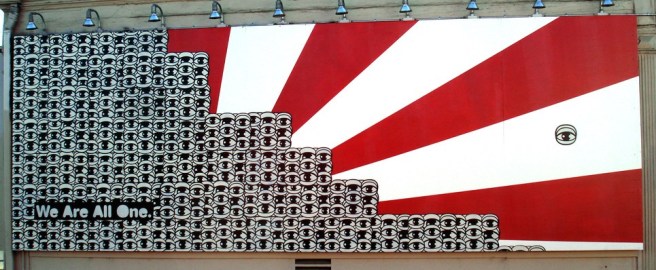This was originally posted in 2011 and seems like a appropriate follow-up to yesterday’s post.
I suppose the notion that the the recovery community is a useful fiction can take us in multiple directions.
- If the recovery community is a fiction, then it’s boundaries are also a fiction, not static, and can be changed (expanded) at any time.
- If the recovery community is a fiction, the connective tissue may be more brittle, and unity more fragile, than we imagine.

Ta-Nehisi Coates explores the challenges and political fiction of political movements by unpacking this passage from a feminist:
“She, who is so different from myself, is really like me in fundamental ways, because we are both”: This is the feminist habit of universalizing extravagantly–making wild, improbable leaps across chasms of class and race, poverty and affluence, leisured lives and lives of toil to draw basic similarities that stem from the shared condition of sex…
Inevitably, the imagined Woman fell short of the actualities of the actual woman it was supposed to describe, and inevitably, the identification between the feminist who spoke and the woman she spoke for turned out to be wishful, once those other women spoke up…
But although the Woman at the heart of feminism has been a fiction like any political fiction (“workers of the world,” “we the people”), it has been a useful fiction, and sometimes a splendid one. Extravagant universalizing created an imaginative space into which otherwise powerless women could project themselves onto an unresponsive political culture….
I’ve sometimes struggled with the recovery advocacy movement suffering from the same thing. I think you could substitute “woman”, “feminist”, etc with recovering people and it would be pretty accurate.
We often struggle with how inclusive to make definitions of recovery, who we include in the “community”, etc.
This push to universalize recovery has, I think, been helpful. It’s pushed many people in the recovering community to think of themselves as something larger than their small group and how more people might be helped. (It’s worth noting that Bill Wilson has been described as obsessed with how to reach and bring more people into recovery.) But, it has its limits and, at some point, I suspect it could be harmful. The same walls that inhibit inclusiveness also serve as a container for shared identities, concerns, sentiments, etc. So, I think some caution is probably a good thing.
Ta-Nehisi offers this thought:
But what I like about her analysis is that it doesn’t stop at noting the very obvious point, that political fictions don’t live up to realities.Instead she pushes on to assert that people create political fictions for actual reasons, and often those fictions have actual positive results.
